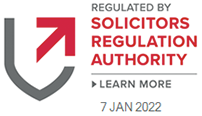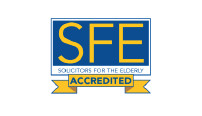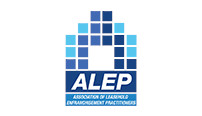Helping you make the very best of what you own.
We work with freeholders and leaseholders to help them make the very best of what they own.
Leasehold Enfranchisement – the legal right given to a leaseholder to extend a lease or buy the freehold or a share of it (collective enfranchisement) can involve all parties concerned in a complicated and time-consuming process. But if you’re a leaseholder it’s an investment worth making and, if you’re a freeholder, worth agreeing to.
And that’s where our property solicitors can make a real difference. As specialists in Leasehold Enfranchisement our team has the knowledge and experience to lead you through all the legal requirements that govern this process – from determining eligibility, to guiding you through the process for calculating the best possible premium, to advising on costs and obligations. And, acting for freeholders and leaseholders, we understand the two, sometimes conflicting, standpoints. When it comes to negotiations, this counts for a lot. When it comes to getting the best results for clients, our team’s experience means everything.
Our Leasehold Enfranchisement experts steer clients along the right track. They arm clients with the information they need, giving them practical options, helping them maximise opportunities and making sure they comply with the law.
And it all begins with a free initial consultation.
Frequently Asked Questions (FAQs)
When should I think about extending the lease on my leasehold property?
When your Lease has between 80 to 90 years left to run you should think seriously about applying for a Lease Extension. Preferably the Lease should be extended before it falls below 80 years as it may be more expensive to extend once it falls below this threshold, and it may also be difficult to sell your property as lenders may be reluctant to lend to you if your lease has less than 80 years to run.
The Leasehold Reform and Urban Development Act 1993 (“the Act”) provides Tenants (Leaseholders) with the right to apply to their Landlord (Freeholders) for a new lease for a term of 90 years (plus the present unexpired term of their existing Lease) at a peppercorn rent (ie: a zero ground rent) if they meet certain conditions.
Am I eligible to extend my lease?
In order to qualify for a Lease Extension, you must have owned the property for at least two years and you must own a long lease of the property (ie for a term of more than 21 years).
What’s a Section 42 notice?
Once you’ve verified that you are eligible to apply for a Lease Extension, a Section 42 Notice must be prepared and served on the Landlord notifying them that you intend to exercise your right to acquire a new Lease.
The Notice must offer a realistic price for the Lease Extension, and may also suggest any other amendments that you require to made to the lease (although there are limited grounds on which you can insist on changes if the Landlord does not agree.)
You should be aware that if you fail to offer a realistic price, the Notice is deemed invalid and you will be barred from serving a further Notice for 12 months.
Do I need to serve Notice on my landlord?
Rather than you having to serve the landlord with a Section 42 Notice, the Landlord may be willing to grant you a Lease Extension voluntarily.
This makes the process easier and more cost effective, however, the Landlord will still require you to pay his reasonable legal and surveyor costs (see Q6 below). There are, however, some clear benefits to applying under the Act (see Q1 above) – in particular, the Act sets a strict timetable to be adhered to by all parties, and if there are any disputes over terms, an application can be made to the First-tier Tribunal (Property Chamber) for determination of those issues.
Do I have to inform my Mortgage Company about my lease extension?
If the Lease Extension is carried out voluntarily and you have a mortgage, your mortgage company’s consent will need to be obtained and a Deed of Substituted Security may be required.
If the Lease Extension is carried out under the Act (see Q1 above), the mortgage company’s consent is not required as their charge automatically transfers to the new Title Number, however, it is prudent to keep them informed and it may be that the conditions of the mortgage need to be checked to see whether there are any particular requirements or restrictions (ie the mortgagees themselves might impose a requirement on you to seek consent before you are permitted to exercise the right to apply for a new lease).
How much should I pay to extend my lease?
You’ll need to pay a premium (ie: the price of the lease extension) plus the costs involved in conducting the procedure. It’s usual for the Leaseholder to pay all the Freeholders costs (legal, surveyor etc) incurred in granting the Lease Extension, as well as your own costs in this regard.
You should be aware that you will become liable for the Freeholder’s surveyor and legal costs as soon as the Section 42 Notice is served. And, at any time after the service of the Notice, the Freeholder can require the Leaseholder to pay a deposit of 10% of the premium. If the Notice is withdrawn or ceases to have effect the deposit will be returned less the Freeholder’s proper costs incurred to that date.
To help you decide a ‘realistic’ price to pay to extend your lease, you should instruct a surveyor to do a valuation, before you commence negotiations with the freeholder. It is likely that the Freeholder will wish to get their own independent valuation report and you’ll be responsible for these costs as well as for your own surveyor’s.
I want to buy a property with a short lease. What should I do?
If you are purchasing a property that has a short lease, you should make it a condition of your purchase that the seller assign the benefit of the Section 42 Notice to you, so that you, as the new owner, have the right to request a lease extension from the freeholder, without having to wait two years (see Q2) to extend the lease, in your own right.
So, if you plan to buy in these circumstances, make sure that:
- Your solicitor prepares the Section 42 Notice, so that you have more control over the procedure
- The Contract of Sale states that the Seller will serve the Section 42 Notice on the Freeholder of the property between exchange and completion and that the Seller will assign the benefit of the notice to you, the Buyer, on completion
- The Notice offers a realistic price for the Lease Extension, otherwise the Notice will be deemed invalid. If the Notice is deemed to be invalid you will be barred from serving a further Notice for 12 months and in addition as a new owner, you will be forced to wait for a total of 2 years until you qualify in your own right (see Q2 above)
- You include any required amendments/variations to the Lease in the Notice.
You should also be aware that as soon as the Notice is served, you will become liable for the Freeholder’s surveyor and legal costs (whether or not the Lease Extension proceeds to a completion). Further, at any time after the service of the Notice, the Freeholder can require that you, as the new incoming Leaseholder, pay a deposit of 10% of the premium. If the Notice is withdrawn or ceases to have effect the deposit will be returned less the Freeholder’s proper costs.
Once the premium and terms of the New Lease have been agreed with the Freeholder, documentation that gives effect to the Lease extension is drawn up. This is usually done by way of a Deed of Surrender and Re-grant – the existing Lease on the property is effectively surrendered and a New Lease is granted to you with a new title number.
If you cannot agree with the Freeholder on the premium/price of the Lease extension or the terms for the new lease, you can seek the disputed issues be determined by the First Tier Tribunal Property Chamber. However you should try, if at all possible, to avoid having to resort to the Court to settle this kind of issue, due to the potential costs involved.
Can I extend my lease without using a surveyor or solicitor?
Whilst you can attempt to extend your lease directly with the Freeholder, there are various pitfalls that you’ll need to be aware of.
Consequently it’s advisable to seek some advice from a Leasehold Enfranchisement specialist to ensure that you don’t end up incurring more costs or more importantly being refused the right to extend altogether.
The leaseholder of a property I own as freeholder has approached me for a lease extension. What should I do?
The leaseholder is responsible for your reasonable costs in respect of the lease extension. Therefore, as soon as you receive a request from the leaseholder to extend the lease, you should first ask for an undertaking that your costs will be met.
Once you’ve received that undertaking, you should instruct a surveyor/valuer to give you an indication of what you should expect to receive as the premium/price for granting the lease extension. You may also wish to check with your surveyor as to whether his fees include any potential negotiations that might be required.
What should I do if I’m served with a Section 42 Notice?
If a Section 42 Notice has been served on you, it is essential that you respond within two months, otherwise the Leaseholder will be entitled to a lease extension on the terms they proposed, which could include a lower premium than that which you’re entitled to receive.
A group of leaseholders from a block of flats I own as freeholder are making a Collective Enfranchisement claim. What should I do?
If the leaseholders are interested in pursuing a Collective Enfranchisement claim to purchase the freehold, you are obliged to sell, if the claim is valid. In order for the leaseholders to qualify for a collective enfranchisement claim, the following conditions must be met:
- The building must be an independent building or part of a building which is capable of independent development.
- The building must contain two or more flats held by qualifying leaseholders (a person is a qualifying leaseholder if their lease is a long lease ie a term which when originally granted was for more than 21 years).
- There is no resident freeholder.
- No more than 25% of the internal floor space is used for non-residential purposes
- At least two thirds of the flats are held by qualifying leaseholders (where one person is the qualifying leaseholder of three flats or more, none of those flats can be counted – business and commercial tenants are also excluded from the count).
Assuming the claim is valid and the leaseholders have served the Initial Notice on you claiming collective enfranchisement, you must serve a Counter-Notice within 2 months, otherwise you may have to agree to a purchase of the freehold on the terms that the leaseholders have required, which may include a lower premium/price than that to which you’re entitled.
On receiving the Initial Notice, you have the right of access to the property/properties for valuation purposes and the right to request information as to each leaseholder’s right to participate.
Once the Initial Notice is served, the leaseholders become responsible for your reasonable costs in agreeing to this collective enfranchisement. These costs include surveyor costs and legal costs.
I am one of a group of leaseholders in a block of flats that want to purchase the freehold of the building. What are our options?
In order for you as a group of leaseholders to purchase the freehold of your building you must together qualify for a Collective Enfranchisement claim, which requires the following criteria are met:
- The building must be an independent building or part of a building which is capable of independent development.
- The building must contain two or more flats held by qualifying leaseholders (a person is a qualifying leaseholder if their lease is a long lease ie a term which when originally granted was for more than 21 years).
- There is no resident freeholder.
- No more than 25% of the internal floor space is used for non-residential purposes.
- At least two thirds of the flats are held by qualifying leaseholders (NB: where one person is the qualifying leaseholder of three flats or more, none of those flats can be counted – business and commercial tenants are also excluded from the count).
If your group of leaseholders meets the above criteria then you have a valid collective enfranchisement claim and can go ahead and serve an Initial Notice on the freeholder to that effect.
You should note however that at least 50% of qualifying leaseholders must serve the Initial Notice.
However, before the Initial Notice is served it’s important that all the participating leaseholders enter into a Participation Agreement. This agreement commits each leaseholder to proceed with the purchase once the process has been started – thus ensuring that the requirement for at least 50% of qualifying leaseholders to serve the Notice is maintained throughout proceedings. The participation agreement will cover matters such as:
- Which flat owners are participating
- The proportion of the purchase price payable by each participating flat
- The proportion of costs payable by each participating flat
What the majority shall be for decision making (ie. whether to accept any offer made by the freeholder) - Who will be appointed to liaise with professional advisors etc…
Once the Initial Notice is served, the freeholder must serve a Counter-Notice within 2 months of the Initial Notice. Negotiations are then ongoing.
During negotiations, the leaseholders become responsible for the freeholder’s reasonable costs (whether or not the matter proceeds to completion). These costs include surveyor costs and legal costs. The freeholder will also have the right of access for valuation purposes and the right to request information as to each leaseholder’s right to participate.
As qualifying leaseholders it is advisable to act through a Nominee Purchaser (usually a company set up by the leaseholders for that purpose) who conducts all proceedings arising out of the Initial Notice. You should be aware that once a company is created there will be ongoing administrative requirements that will have to be dealt with.
For legal advice on any property related matter, complete the form below, email us at solicitors@gillhams.com or call us on +44(0)20 8965 4266.
Contact us
We’d love to hear from you. If you would like to make an enquiry, please complete the form below. Fields marked with a * must be completed.
We’ll only use this information to handle your enquiry and we won’t share it with any third parties. For more details see our Privacy Policy








